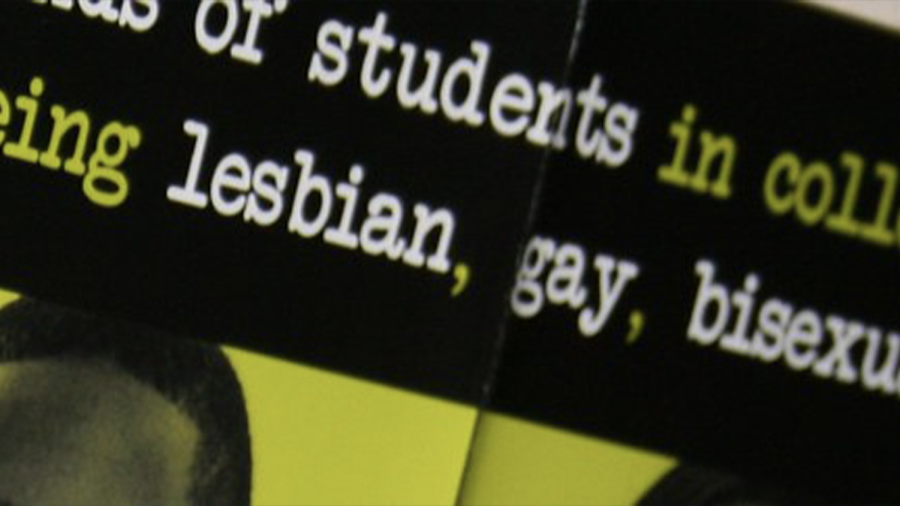‘Don’t Say Gay’ Now. What Can’t We Say Next?
Florida Governor Ron DeSantis signed a bill on March 28 prohibiting any “classroom discussion about sexual orientation or gender identity” for schools in the state. While the bill never explicitly states the words “Don’t Say Gay,” the media often refers to the bill as such.
The bill only strictly restricts discussion of LGBTQ+ for kids from kindergarten through third grade. However, for older kids, only topics deemed “age-appropriate” are allowed to be discussed, allowing for loopholes to limit LGBTQ+ discussion entirely.
Upper School history teacher Matthew June, who has taken on an additional role at Latin as the Difficult Dialogues Coordinator, said, “There’s not even any mechanisms yet to do what it says it wants to do. It’s just to create this fight.” The bill allows parents to sue schools for any sort of “encouraging” discussions of sexuality or gender identity, but it’s unclear as to what would be considered punishable.
Upper School computer science teacher and LGBTQ+ affinity advisor Ash Hansberry said, “I understand that parents should be involved, but it does seem like part of a bigger trend, like the bills not allowing teachers to teach critical race theory.” This past year, 17 states have imposed bills restricting teaching on critical race theory and discussing both racism and sexism.
Dr. June said, “We’re already seeing this spread to different states, and it’s only a matter of time before these same kinds of laws, whether it’s about this … or banning books, are passed.”
Many fear that the consequences of the bill will extend the current mental health crisis in America. Senior Kazi Stanton-Thomas said, “The education of queer topics and history has been shown to correlate in a decrease of discrimination of queer people as well as the suicide rate.” Kazi and Mx. Hansberry also said that prohibiting a child from speaking to their parents about their own identity could potentially cause them to feel isolated.
Additionally, the mistreatment and bullying of openly queer members of the community could be an indirect effect of the law. Mx. Hansbery said, “It doesn’t make you any less harmful to a population to act like they don’t exist.”
Although children will be primarily affected by this bill, Gov. DeSantis signed a bill last week attempting to dismantle Disney’s special tax district after the media and entertainment company publicly denounced the “Don’t Say Gay” bill. Disney’s Tax District—the Reedy Creek Improvement District, circa 1967—controls aspects of the park such as road building and maintenance.
Dr. June attributed the move against Disney to America’s ongoing culture war. “It seems like everything is just designed for more of a fight, more ways to set up throwing accusations at people,” he said.
“Is changing Disney’s tax status doing anyone any good?” Mx. Hansberry asked. “That’s the most frustrating part about it.”
The “Don’t Say Gay” bill could be detrimental for children’s futures, too, noted Mx. Hansberry. “It is important for kids in school to see representations of themselves and of people different from them because that’s how you become a person that is confident in yourself, but also a contributing member of a community,” they said.
Kazi agreed, adding that, “Education of queer topics allows for the growth of safety, health, and happiness of all, regardless of any attachment of identity.”
“There are still going to be kids who are queer, but now they’re not going to have supports,” Mx. Hansberry said. Part of the bill reads that parents must be notified if any LGBTQ+ topics come up in a session, such as questioning one’s own sexual orientation or gender identity. Even if counselors were aware of a child’s unaccepting parents, they would be obligated to notify them by law. Mx. Hansberry said, “If school is making kids question if they’re allowed to exist, we’re doing something very wrong.”
Dr. June said, “It’s often the unplanned conversations that come up that are the most important to have, and this bill will inherently make teachers avoid those conversations at times when they’re most important.”

Ava Tse (’24) is thrilled to serve as a Managing and Standards Editor this year. Integrity and empowerment always come first in her journalism, and in...




















































